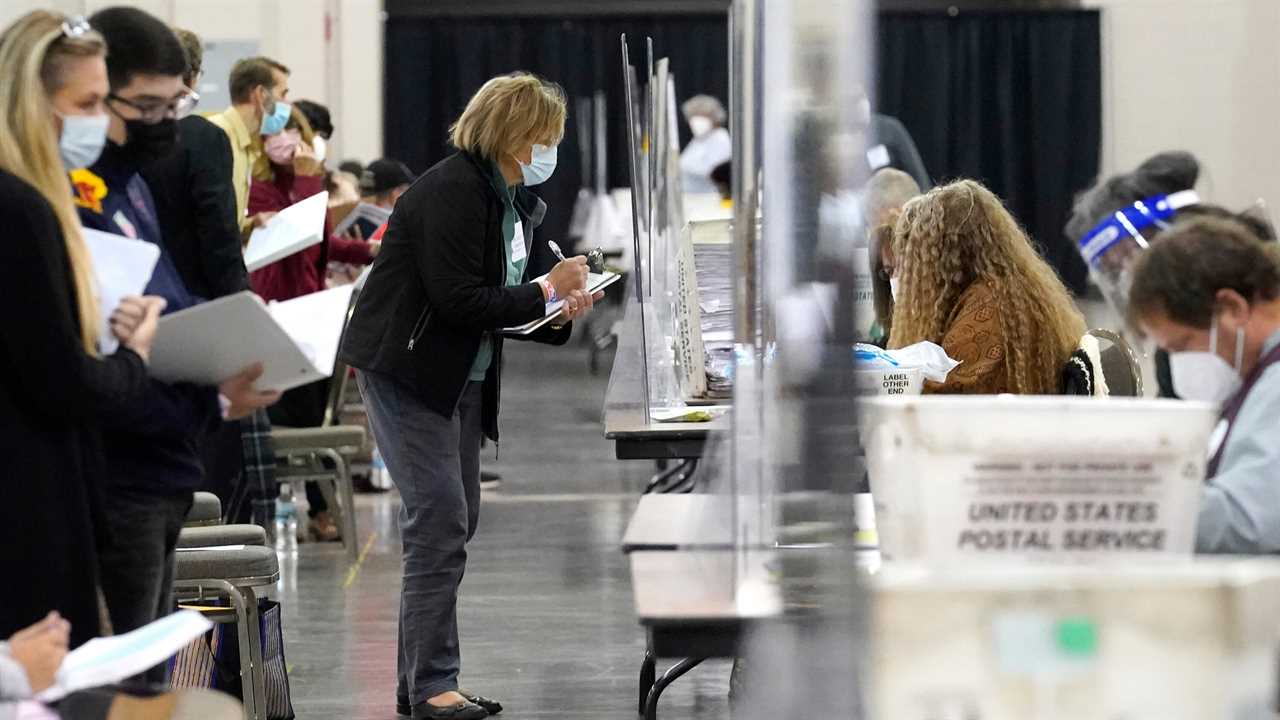
The Wisconsin Supreme Court on Thursday rejected a Trump campaign lawsuit that aimed to invalidate more than 200,000 votes cast in two of the state’s Democratic bastions, narrowing yet another legal avenue by which the departing president has tried to overturn the results of the election.
The conservative-leaning court’s 4-to-3 vote to decline to take the case stopped one part of a multipronged attempt by President Trump and his supporters to upend Wisconsin’s entire system of absentee voting, which the Trump campaign had sought to cast as violating state law.
The court’s three liberal justices and one conservative justice who joined them said that the Wisconsin Supreme Court was not the proper venue for the Trump campaign’s lawsuit and suggested that it refile the suit in a lower state court.
“We do well as a judicial body to abide by time-tested judicial norms, even — and maybe especially — in high-profile cases,” wrote Justice Brian Hagedorn, the conservative who sided with the liberals. “Following the law governing challenges to election results is no threat to the rule of law.”
Late Thursday, the Trump campaign’s Wisconsin lawyer, James Troupis, filed new, separate lawsuits in Dane County and Milwaukee County that aimed to invalidate votes in the two Democratic areas at issue in the case that the Supreme Court declined to hear.
But Mr. Troupis and the Trump campaign are running short on time for any legal action to change the reality of President-elect Joseph R. Biden Jr.’s 20,000-vote victory in Wisconsin. The deadline to exhaust legal challenges to state certifications is Tuesday, and the Electoral College is set to meet on Dec. 14 to formally vote to make Mr. Biden the next president.
While Mr. Trump has falsely claimed that the presidential election was “rigged” in many states, his campaign and its Republican allies have not argued that the election in Wisconsin was marred by fraud. Instead they have argued that the systems and rules Wisconsin has used for its last 11 statewide elections have been illegal.
For the last two weeks, Mr. Troupis has argued that the acceptance of in-person absentee ballots by municipal clerks before Election Day violated state law — even though local elections officials were carrying out the process at the direction of the Wisconsin Elections Commission, a bipartisan body that oversees the state’s elections.
“I’ve yet to see a credible claim of fraudulent activity during this election,” Dean Knudson, a Republican member of the elections commission, said during the body’s meeting on Tuesday. “The Trump campaign has not made any claims of fraud in this election. These are disputes in matters of law.”
The Trump lawsuit also argued that municipal clerks should not have been allowed to complete address forms for witnesses to absentee ballots, which the elections commission had given them permission to do. State law requires absentee voters to have witnesses sign their ballot envelopes. The lawsuit also asked the court to invalidate ballots that were collected by the Madison municipal clerk at October gatherings in city parks, though those events were also blessed by the elections commission.
The Trump campaign challenged ballots only in Milwaukee County and Dane County, which includes Madison, the state capital and home of the flagship University of Wisconsin campus. The two counties are the largest and most Democratic in the state.
The campaign late Wednesday filed a similar lawsuit in federal court in Milwaukee seeking to undo the result of the state’s election entirely and have Wisconsin’s 10 Electoral College votes be determined by its Republican-controlled State Legislature.Two other suits — one in the federal courts and another pending before the Wisconsin Supreme Court — are also seeking to challenge the state’s election.
Few senior Republican officials in Wisconsin believed the Trump campaign’s arguments would lead to the result of the election being overturned and the state’s 10 electoral votes going to Mr. Trump instead of Mr. Biden.
“The problem for the courts is — even if they accept the argument of the president’s lawyers — what is the remedy?” former Gov. Scott Walker, a Trump loyalist, wrote on Facebook on Tuesday.
Wisconsin law, as Mr. Walker noted, stipulates that if municipalities determine after the election that an absentee voter should not have cast a ballot, the elections clerk is to pick a ballot at random and discard it, since there is no way at that point to connect a ballot to the voter who cast it.
The Trump campaign’s lawsuit, if it had been successful, would not necessarily have invalidated ballots cast through the manner it claims was illegal. It simply would have reduced the number of votes from the state’s two most Democratic counties without addressing ballots cast in an identical manner in the state’s other 70 counties.
Alan Feuer contributed reporting.
Did you miss our previous article...
https://trendinginthenews.com/usa-politics/harris-adds-to-a-diverse-staff-where-a-majority-like-their-boss-are-women-of-color






